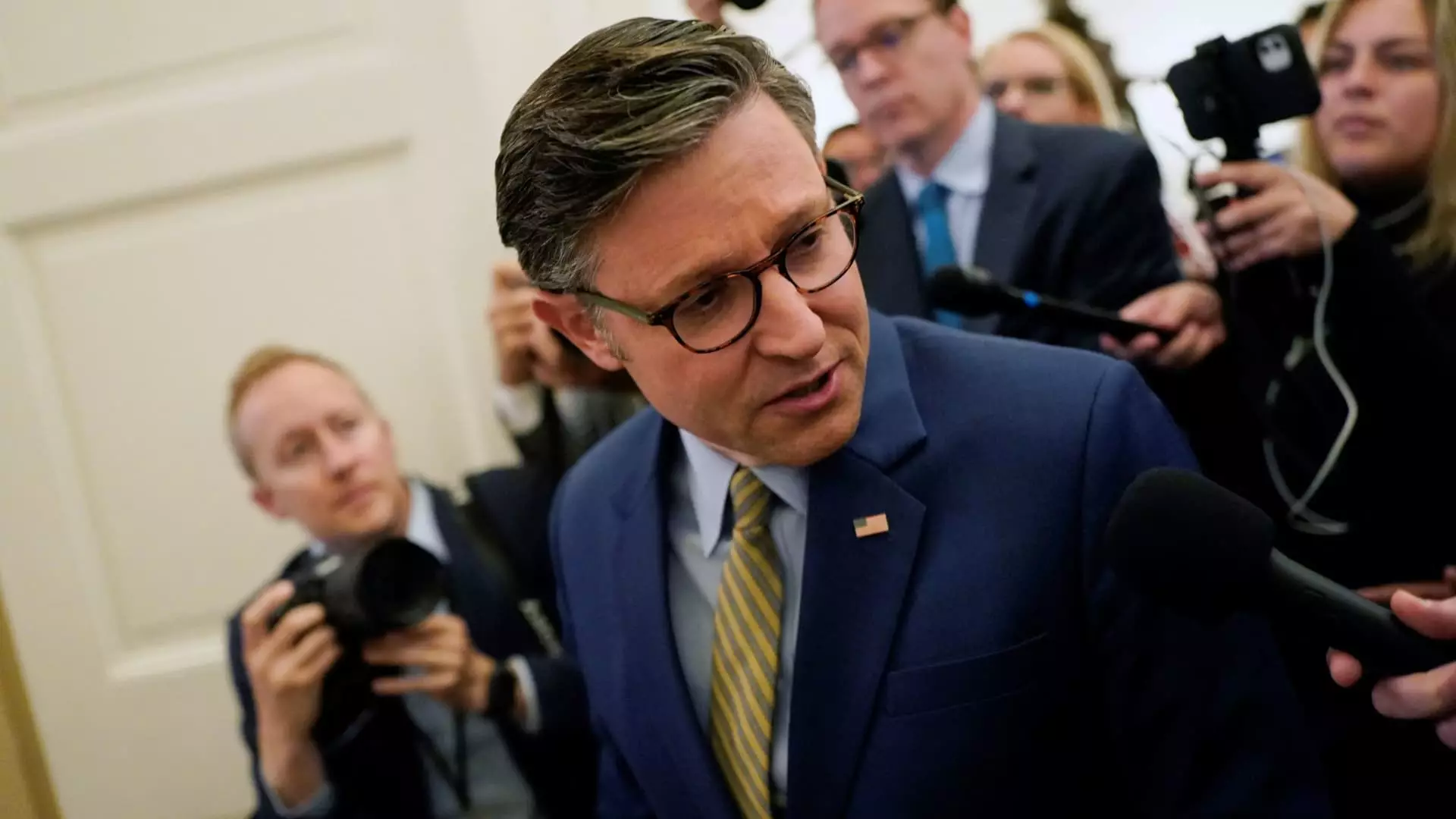House Speaker Mike Johnson recently branded the recent spending package as a “big, beautiful bill,” touting it as the largest spending cut in three decades. While such rhetoric is designed to evoke support and pride, it belies a gritty reality. Critics, particularly those within the Republican Party, have voiced concerns over the bill’s potential to inflate federal deficits dramatically—by an estimated $3.8 trillion over the next ten years, according to a Congressional Budget Office analysis. Johnson’s dismissal of these grave legitimate concerns, deeming them as “dramatically overstated,” not only raises red flags but also suggests a troubling disregard for fiscal responsibility.
The Fallacy of Growth Through Debt
Johnson’s insistence that the bill will ignite economic growth through tax cuts for entrepreneurs and job creators is reminiscent of fantasy economics. He argues that the proliferation of business opportunities and U.S. manufacturing will naturally follow if we simply reduce taxes and deregulate at will. However, history paints a less optimistic picture. Economic booms fueled by excessive tax cuts often lead to runaway deficits that burden future generations. The gleaming promise of soaring wages and unprecedented job creation remains a mirage, obscured by layers of rising national debt that will eventually demand a reckoning.
Erosion of Bipartisan Responsibility
The passage of this multitrillion-dollar package faced bipartisan opposition, a stark reminder of the severe reputational damage done within the GOP regarding fiscal prudence. As Republican senators, including veteran fiscal guardians like Sen. Ron Johnson of Wisconsin, express genuine concern over the implications of soaring deficits, one must ponder whether the party is now fracturing under the weight of its shifting priorities. The pressure from former President Trump adds an additional layer of complexity, as his presence looms large over legislative decisions, compelling lawmakers to align with his populist vision rather than sensible economic governance.
A Delicate Balance That Invites Chaos
Speaker Johnson’s caution about altering the bill too much as it heads to the Senate reflects a precarious tightrope to walk. His fragile majority in the House necessitates strategic calculations, where the loss of a single vote could spell disaster for this ambitious agenda. There’s a stark irony in proclaiming the need for equilibrium while riding roughshod over the ethical implications of borrowing against the nation’s fiscal future. The predictability of infighting and disagreement among Senate Republicans only fuels the chaos, endangering the passage of a piece of legislation that is already contentious.
If Johnson wishes to unify his party, perhaps it’s time to reconsider whether reckless promises of growth through fiscal irresponsibility will truly resonate with a weary electorate already grappling with the repercussions of prior legislative blunders. What is urgent is not mere financial maneuvering but a commitment to a balanced approach that offers real economic stability and growth, devoid of hollow promises. This package, championed as a golden opportunity, could instead turn into a Pandora’s box of economic misfortune.


Leave a Reply